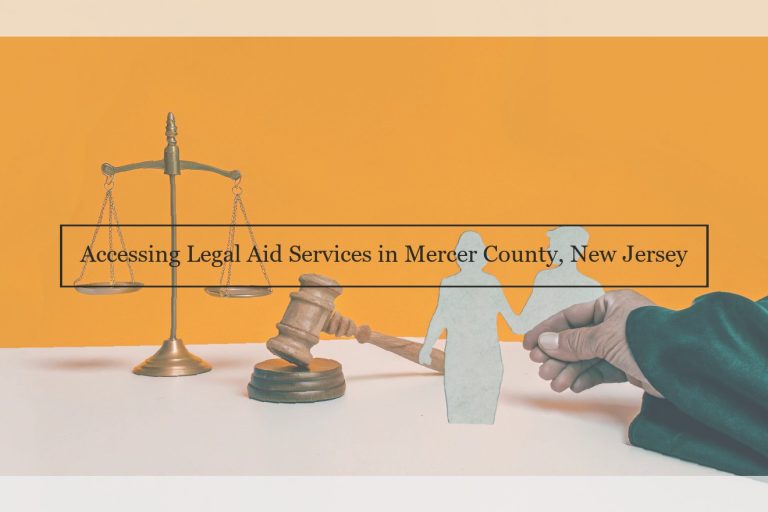All You Need to Know About Independent Contractor Agreements
At a basic level, an independent contractor is someone who provides goods and services. An employee, on the other hand, is generally required to do what a company tells them to do the way the company wants them to do it. One of the simplest ways to establish that a new hire is an independent contractor and not an employee is to have them sign an independent contractor agreement. Although it is not strictly required by law, it is a standard practice for independent contractors to sign this type of document. Both parties can benefit from having this contract in place, since it clearly defines the relationship.
It is important to note that an independent contractor agreement does not make someone an independent contractor. The classification comes first and the contract merely establishes the terms of the relationship. In the absence of a contract, a contractor could potentially be reclassified as an employee. Either way, an independent contractor agreement helps both parties as long as it covers all the essential elements. There are a number of key elements every independent contractor agreement needs to have. The contract needs to make it clear that the contractor will be paid upon completion of the project. This means setting a set price to be paid in full. A general hourly or salaried rate can also be established, but it is important to make sure there is a vague range for hours so that the project can be completed within can be accomplished within that amount.
Terms of payment, such as when the contractor will be paid, should also be included . Are they to be paid upon completion of the project, as stipulated above? Or will they be paid in stages as work on the project progresses? For some independent contractors who are freelancers, partial payments upon receipt of completed work is a good option. W-9 or 1099 forms are often requested to make sure workers are classified correctly and that all necessary taxes are paid upon completion.
The tools to be used by the contractor should also be detailed in the contract. It is possible that a contractor may be required to use their own tools at times, so this is an important consideration. This should be mentioned in the contract along with a clear choice for if the contractor has to provide the tools or the client does. If clients want certain materials used for projects like office design work, such as specific fabrics and supplies, these can also be discussed.
Next, the contract should discuss liability. Both parties should make it clear whether or not the worker will be liable for any damages that may occur on the job, whether intentional or unintentional. Make sure to consult with legal counsel to understand what is appropriate for your situation.
Client confidentiality is also something that should be taken very seriously and discussed within the contract. It is not just at risk during the project, but even after the work is over it can be exposed. If clients have concerns about the confidentiality of trade secrets or other confidential information, this should be discussed. At the very least, it is wise to include a clause in the contract that outlines what is considered confidential.

Legal Considerations in Virginia
Independent Contractor Agreements in Virginia
While the IRS and the FLSA provide federal guidelines for the classification of independent contractors, individual states (they have their own test for whether someone is an employee or not) and municipalities also impose requirements that must be satisfied. For example, states may require employers to provide written agreements stating whether a worker is an independent contractor or an employee. Virginia, however, is a state that does not have any specific requirements for independent contractor agreements or employment agreements. We should note, however, that a person who performs services as an independent contractor or otherwise does not consider themselves an employee of the business, they still may be considered an employee (not an independent contractor) if they are offering services to the public as a business, as opposed to greatly depending on one other business for their income. This analysis looks at the nature of a potential employer’s business, rather than factors between the potential employer and the worker themselves. Therefore, it is always best to have a detailed and explicit independent contractor agreement that puts all parties on notice as to what is expected and anticipated.
Virginia also does not have specific laws governing the payment of wages for independent contractors. Thus, unless there is a written agreement, oral agreements will suffice, and the payment agreement can include the use of future wages or commissions. If the written agreement is not clear, or not governed by the Virginia Wage Payment Act (the "VWPA") – which only applies to employees, not independent contractors (although, some municipalities in Virginia may have different provisions) – the state courts will use the general rule of contract law to determine when the wages or commissions are paid. This means that if the phrase used is "upon completion of the contract", whether the contract is completed is an important consideration.
Even if no written agreement is used, the scope of the work must be reasonable (i.e., what is the typical scope for the employment at issue, and was it reasonable for the parties to consider that to be the entire scope of employment?). An independent contractor also cannot be bound to a contract without a termination date (i.e., which states that the contract will run until a specific date) – this also applies to contracts that contain some trigger event or provision for termination, but not a precise termination date.
Although the VWPA specifically excludes independent contractors from its requirements, there are two exceptions. The first exception provides that if there is an express contract provision for "the payment of wages" after the employee’s service has been discharged, the employer must still make payment of the wages within 30 days after termination and during normal business hours. The second exception provides that if an employee is terminated or quits without "just cause", the employer must pay the employee off in four days, however, this exception is not applicable to independent contractors. This means that if an independent contractor believes it is agreed upon that he is to get paid weekly, and the employer decides to stop all payments, the contractor would have no recourse.
Important Provisions to Cover
In Virginia, like many other states, independent contractor agreements do not need to be in writing to be enforceable. That said, having a written contract is strongly advised. A written agreement will not only set proper expectations, but it can also serve to protect both parties in the event of a breach. A contract is a legally binding agreement that governs the relationship between the business and the contractor. In order to be enforceable under Virginia law, the contract should include:
Payment Terms
In the past, such contracts were often structured hourly. However, due to the uncertain nature of such arrangements (e.g., how long would the job take to complete; what happens if the contractor agreed to be paid for so many hours – and then took twice that many?) – many of today’s contracts – even in Virginia – are structured as a flat fee. Regardless, terms related to payment should be detailed in the agreement to clarify when payment is due and how the payment will be made.
Scope of Work
Like the payment terms, scope of work provisions can protect the client. For example, if the independent contractor has agreed to install a door, and later wants to bill for some extras, but they weren’t in the scope of work, then the contractor cannot bill for the extras. A scope of work provision is crucial for compliance and for protection in the event of a dispute.
Confidentiality Clauses
Protecting the business includes protecting its proprietary or confidential information ("trade secrets"). In Virginia, an independent contractor agreement can include a confidentiality clause (sometimes also called a proprietary information or non-disclosure clause) that forbids the contractors from disclosing confidential information to any third parties.
Non-Compete Clause
Depending on the type of business and the type of work being performed by the contractor, it may also be necessary to include a non-compete agreement in the contractor agreement. A non-compete clause can prevent former contractors from using the information learned while working for you to go into competition with your business. Such a clause is generally void unless it meets certain criteria.
Tax Considerations for Contractors
Just as employers must consider tax implications when hiring employees, Virginia independent contractors also have tax obligations. All independent contractors must report their income using Schedule C or C-EZ of Form 1040.
In Virginia, independent contractors who receive at least $600 in compensation must file a 1099-MISC form with the federal government. This form should only list those individuals who have received work totaling over $600 and cannot be used to list payments that you would normally report on a W-2 form. For example, payments to independent contractors performing services for your business should be reported on a 1099-MISC rather than on a W-2. 1099-MISC forms do not need to be filed with Virginia state tax filings. Independent contractors can report their income from Form 1099-MISC on their annual individual tax returns.
Although Virginia does not impose a specific occupational tax, independent contractors may need to pay a local business license tax to their city or county government. The IRS website contains more information about federal taxes for independent contractors.
Safeguarding Intellectual Property
The inclusion of intellectual property clauses in an Independent Contractor Agreement is an effective tool for protecting the client’s intellectual property rights, which is often times one of a company’s most valuable business assets, and for protecting the contractor’s interests as well. Virginia law provides some protections for both the contractors and the companies that hire them.
Another important consideration regarding this type of agreement is what happens to the intellectual property rights once the contemplated work is complete? Specifically , what happens to that proprietary content? Protecting these types of rights against misuse or abuse by either party can be difficult and there is no guarantee that a court could or would prevent unintended use of intellectual property that is shared with a contractor. Through the contract, these rights can be protected in detail. For example, a provision may state that the company is the owner of all work product and that the contractor agrees to execute any documents necessary for the company to record its ownership of the work product in the patent or trademark office. Another clause may require the contractor to keep all company information confidential, while another might provide for an injunction if there is a breach of these confidentiality obligations.
How to Handle Disputes
Virginia law provides a mechanism for the regulation of companies that use the services of independent contractors to carry out their business in the form of a "Professional Employer Organization" or "PEO." The relationship between the PEO and the independent contractor and the hiring entity is governed by a tri-party agreement referred to as a "PEO contract." Virginia law does not specifically require the hiring entity to have a PEO contract with the PEO, the independent contractor’s services may be provided without a PEO. However, working with a PEO can be costly, and so the hiring entity should consider whether or not they truly need to utilize the services of a PEO.
One mechanism provided by Virginia law governing the relationship between a PEO, the independent contractor and the hiring entity is mediation. It must be conducted by a CCP which is a governmental or quasi-governmental agency. The purpose of mediation in labor disputes is to provide a forum for disputing parties to meet and discuss the issues at hand in the hopes of coming to an agreement. Often times the mediator will be a trained third party, however, a trained mediator is not required. No one shall participate to represent a party in a mediation unless the party has given the CCP written consent to do so.
If mediation fails the parties can then take more formal steps of pursuing relief through binding arbitration before an arbitration tribunal or submitting the dispute to such tribunal with the consolidation of other disputes. A statement in the PEO contract shall provide that a statement regarding the binding arbitration procedure and the Consolidated Arbitration Model Procedures adopted by the Virginia Court System. Additionally, it shall be signed by the independent contractor. Also, if the independent contractor is incorporated the incorporators must consent to mediation and the adoption of the Consolidated Arbitration Model Procedures.
The hiring entity and/or PEO may submit to arbitration any claims for relief to the Arbitration Services Division of the Supreme Court of Virginia for resolution under its Consolidated Arbitration Model Procedures. The Arbitration Services through the Supreme Court of Virginia has statutory authority and responsibility to facilitate arbitration of claims for relief by providing a neutral forum. The following claims for relief may be submitted to arbitration: The appointment of an arbitration tribunal does not affect the Independent Contractor’s status as an independent contractor and not an employee under guidelines as set forth above. The PEO pursuant to its PEO contract may provide administrative services to assist the independent contractor in the arbitration procedure.
Revisiting Agreements as Laws Evolve
Because state laws and regulations are not static, an independent contractor agreement that holds true today may not be applicable tomorrow, especially if there are any material changes to Virginia law. For example, several years ago, the Virginia legislature significantly changed several key provisions of the Virginia Payment of Wage Act, which could have materially impacted existing independent contractor agreements . In addition to reviewing a Virginia independent contractor agreement upon hiring a new independent contractor, Virginia companies must periodically review their standard independent contractor agreement forms to determine whether they need to be revised to comport with changing laws or regulations.
A good place to start is by periodically checking the VWC’s website, where the agency posts information about new court cases and legislative changes. You can also check the websites of organizations that specialize in labor law, such as Employment Law Alliance, state and local bar associations, state or local business advocacy groups, and human resource groups.




+ There are no comments
Add yours